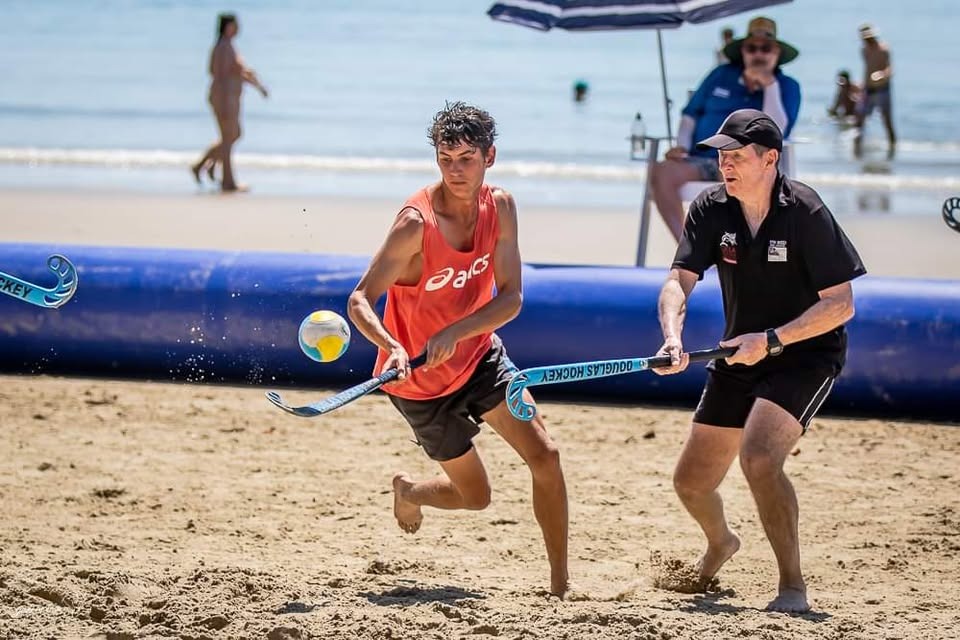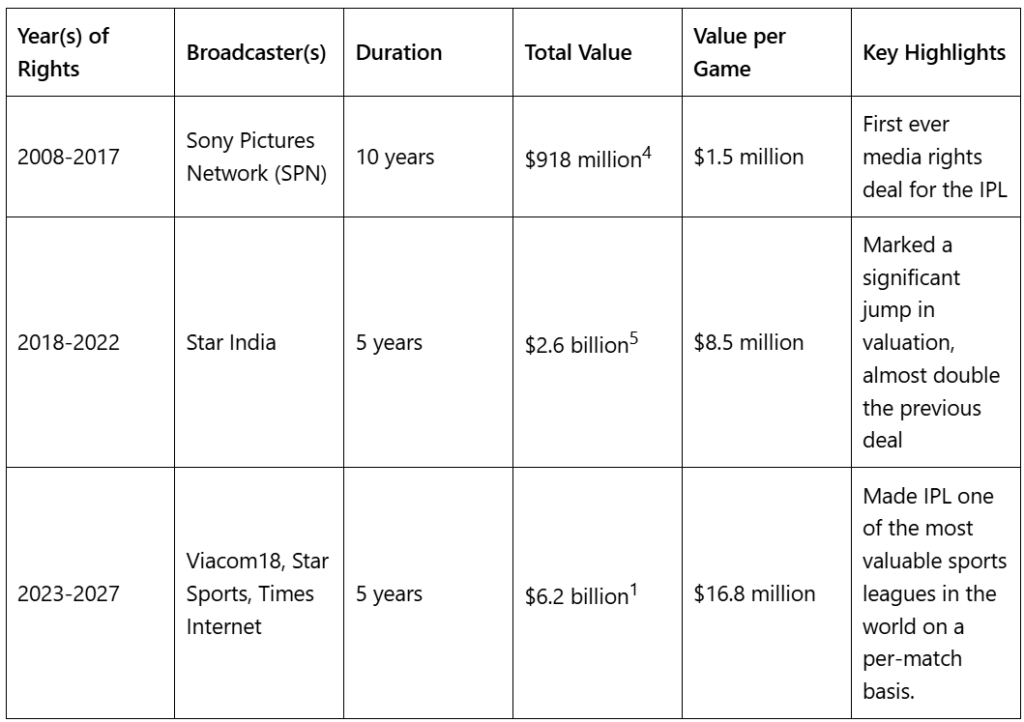Mary Harvey, a former U.S. Women’s National Team goalkeeper and FIFA Women’s World Cup champion, is now a global advocate for human rights in sport. With an MBA from UCLA and a decorated playing career that includes Olympic gold and professional stints in Germany and Sweden, Harvey transitioned into leadership roles off the pitch – including as FIFA’s first female Director of Development, where she managed a $160 million annual budget and spearheaded global women’s football development. She was also instrumental in driving governance reforms at FIFA through the #WomeninFIFA campaign and wrote the first-ever Human Rights Strategy for a mega-sporting event as part of the United 2026 World Cup bid.
Currently the CEO of the Centre for Sport and Human Rights, Mary joins Taruka Srivastav for a deeply insightful discussion on safeguarding, gender-based violence, and the urgent need for structural change across sports ecosystems. Drawing from her work with Afghan women footballers, her role in policy change, and her lived experience as an elite athlete turned sport diplomat, Mary reflects on the power dynamics, vulnerabilities, and solutions shaping the future of women in sport.
Most people know you as a World Cup champion and Olympic gold medalist, but I want to start with your journey beyond the field. You’ve worked with FIFA and contributed significantly to women’s soccer in the US and globally. How did this transition from athlete to executive unfold for you?
First off, none of this was deliberate. When I hear young people talk about planning their careers, I always say mine was more about doing the next right thing that made sense rather than following a master plan. That said, there were some deliberate decisions along the way.
I played soccer in the late 1980s—I’m turning 60 this year, it’s no secret. Women’s football then was very different; we were largely anonymous. I graduated from UC Berkeley with a degree in finance and went straight into the workforce because I had to support myself, unlike some teammates who could rely on family.
I joined Accenture and was posted to Germany, where I started playing football again just for the love of it. That led to me being scouted for the US Women’s National Team. So my attempt to move away from sport actually brought me back in!
I’ve always had a foot in both worlds—elite sport and professional life. After the 1996 Olympics, I played full-time for two years but then deliberately pivoted to business school to re-establish my corporate identity. I didn’t want to be pigeonholed as “just an athlete.” That MBA and later consulting work with Deloitte gave me the polish and experience that helped me transition into senior leadership roles, including with FIFA.
As you mentioned, many athletes—especially female athletes—struggle with transitioning from sport to life beyond. What advice would you give them?
As to “What’s Next?” Because in sports, the end is inevitable—whether due to age, injury, or life circumstances. So it’s not an if, but a when.
This came up recently during an event Deloitte hosted with US Soccer. Female athletes often have great potential for leadership post-career, but the transition can be unclear—especially for 22- or 23-year-olds.
From my own experience, when I went to business school right after the Olympics, I felt very intimidated. Everyone else had resumes filled with internships and work experience. I hadn’t done any of that—I’d been playing elite sport! But I soon realized something important: the skills I did have from sport—teamwork, leadership, resilience, how to give and receive feedback—were incredibly valuable and rare.
The things I didn’t have, like financial modeling or accounting, I could learn. So I worked hard, took every finance elective, and filled those knowledge gaps. But the “soft skills” from sport? Those were my superpower—and they’re much harder to teach.
That’s why we often see women who played collegiate or professional sports rise into senior leadership. It’s not accidental—it’s that magic blend of discipline, teamwork, and performance under pressure.
That perspective is powerful—especially your analogy about being in a bubble. I completely relate, having come from sport myself. Now shifting focus—can you tell us more about your current role and the work being done at the Centre for Sport and Human Rights?
Absolutely. The Centre for Sport and Human Rights was founded in 2018 by an incredible leader—Mary Robinson, the former President of Ireland and former UN High Commissioner for Human Rights.
The Centre emerged out of a response to human rights abuses reported around mega sporting events in places like Russia, Brazil, and Qatar. Mary Robinson and Professor John Ruggie—who authored the UN Guiding Principles on Business and Human Rights—called on FIFA to act. That catalyzed the formation of the Centre.
We’re an independent organization, but we’re also a coalition. Our members include governments, UN agencies, civil society, trade unions, broadcasters, sponsors—basically all stakeholders in the sport ecosystem.
Our mission is to make sport responsible. That means ensuring that sport doesn’t cause harm—whether to workers, athletes, fans, or host communities—and that it can be a force for advancing human rights.
We focus on four areas:
Convening: Hosting dialogues on sport-related human rights issues.
Thought Leadership: Translating human rights frameworks into practical tools for sports bodies.
Capacity Building: Helping organizations embed human rights into their governance and policies.
Accountability: Supporting transparency and good governance through research and engagement.
It’s about helping sport evolve—not just to avoid harm, but to actively promote human dignity and equity.
That’s such vital and timely work. Sport has immense power to influence society—for better or worse. What’s your hope for the future of sport, especially as it relates to human rights?
My hope is that human rights become non-negotiable in sport. That we stop treating issues like athlete abuse, migrant labor exploitation, or fan safety as one-offs and instead embed responsibility into the DNA of how sport is run.
Sport can be the great unifier. But only if it respects the rights of everyone it touches. That’s what we’re fighting for—and that’s why conversations like this one are so important. So thank you, truly, for shining a light on it.
I wanted to touch upon the case of Rebecca Cheptegi—could you speak to how such incidents reinforce the urgency of your mission?
Yes, absolutely. What happened with Rebecca Cheptegi was heartbreaking. She was an Olympian and just after Paris, she passed away due to gender-based violence. These kinds of tragedies remind us why safeguarding women in sport is a global necessity. Imagine—someone who performed at the highest level just months before is no longer with us. It’s shocking and it propels us to keep pushing for protections and change.
What are some of the challenges you’ve faced in your journey? Especially while working across different countries, governments, and organizations—there must be complexities in navigating systems and cultural dynamics.
Definitely. There have been many challenges. Take Afghanistan for example. In 2003, I was with FIFA just after the Taliban had been ousted. We were trying to rebuild sport in a country where it had essentially been eradicated. There were no coaches, no infrastructure. And the question was: how do we make sport accessible for all genders?
Looking back, I wish we had focused more on safeguarding from the beginning—especially for girls and women. Fast forward a few years and women’s football had become symbolic of progress. Then, when the Taliban returned, those athletes were immediately at risk. They were hunted—door to door searches. It was horrifying.
So one key realization is that athletes, especially those who express themselves or symbolize resistance, incur real risk. In fact, the current UN High Commissioner for Human Rights has recognized athletes as human rights defenders—a special status—because of this.
And people often forget that athletes, especially Olympians, while seen as superhuman, are also incredibly vulnerable. They face economic vulnerability, power imbalances with coaches, and more. These power dynamics in high-performance environments are where human rights abuses and gender-based violence can flourish. Recognizing these vulnerabilities is step one—only then can we start putting effective safeguards in place.
Given all that, have you observed any global improvement in the status of women in sports—especially regarding protection and equity?
We’re definitely seeing women’s sports rise rapidly. The pace of growth, especially in football and other sports, is near vertical. We see more visibility on TV, greater valuation of women’s teams, more sponsorships, and rising audience numbers.
But as the commercial value increases, the conditions of work for these athletes must evolve just as quickly. And we can’t ignore the dark side—online harassment and abuse are rampant. Female athletes are far more likely to be targeted than their male counterparts. At Tokyo, 90% of athletes who faced online abuse were women. That’s staggering.
So while this is a long-overdue moment of recognition for women’s sports, we need to ensure that protections, policies, and working conditions keep pace with the growing exposure and commercial success.



